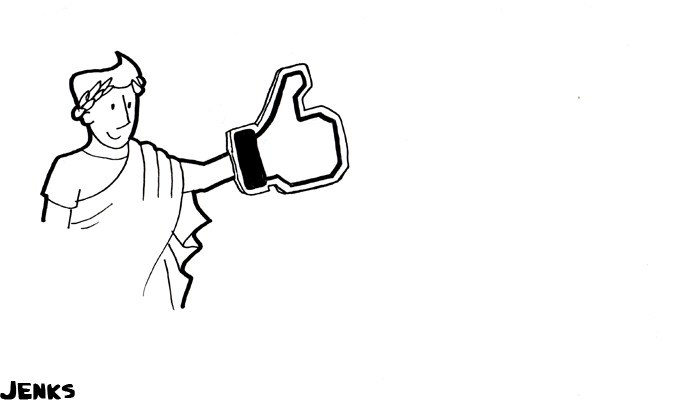If you think of platforms like Google, Facebook, Slack, and Wikipedia and the ways in which they have made the world so much more productive, collaborative and knowledgeable, it seems a shame that we have not used any of the lessons inherent within them to improve our societies.
Our democracies are archaic. Really archaic. I would even go so far as to say that they are actually undemocratic, compared with what is possible today.
The notion of voting every 4 or 5 years for representatives to send to government was designed in an era when horses were the main means of transportation. The average person didn’t have access to the knowledge required to make appropriate decisions, then. Today, we all carry smartphones in our pockets enabling us to access more information than President Clinton had when he was in power. Collectively, we are as capable of contributing to the development of our democracies as we are of communicating with our friends and family on Facebook.
Our legislative system is like a dusty old Encyclopedia Britannica, with its expensive, slow, book by book evolution. We have laws that were written decades ago governing lives that are changing by the minute. We live in an era in which the crowd can develop knowledge that increases by orders of magnitude, for free. Sure, Wikipedia is imperfect at the edges, but its overall positive impact on society is far, far, far greater than its drawbacks. Taking this simple model, human beings are more than capable of coming together, armed with good information or the means to find it, to develop laws, on their own. This can be achieved without middle-men and women who have little or no connection to the real challenges that laws are written to address.
In my opinion, the first country or community that puts this collective capacity to effective use will become the richest, highest-impact community in the world, with the best quality of life.
From what I have seen in my journeys around the world, most global problems have already been solved. It is just a question of gaining access to the solutions. Bureaucracy, policy, legislation, politics, lobbying and self-interest are the primary barriers to radically improving quality of life, globally. This is why I spend so much of my time working on this issue and why I believe that small countries like my own hold the key to solving the problem.
To access the wonders of next-generation society and exponential improvement in quality of life, we have to trust people, be comfortable with an element of chaos, shift from rules to values, and embrace the power of technology. We need a real-time democracy.
Marc
P.S. Come and see Santi Siri from Democracy Earth at TEDxStPeterPort. He will be speaking about what democracy looks like in the internet era.
P.P.S. My first podcast is on the future of law, artificial intelligence and society; with the genius co-founder of real-time legislation startup Ozoris – Mr. Martyn Dorey.
Check out the podcast at Coffee From The Edge.
Buy Me a Coffee
Did you love this article? If so please consider buying me a coffee.
Take The 50 Coffee Adventure
A Fun, Light and Easy Way to Build Connections
Or search your local Amazon store for "The 50 Coffee Adventure".

Hi Marc,
If I understand correctly, your “real time democracy” is a form of technology-enabled “direct democracy” – https://en.wikipedia.org/wiki/Direct_democracy
You also say that “the first country or community that puts this collective capacity to effective use will become the richest, highest-impact community in the world, with the best quality of life.” A example for this already exists – Switzerland, which successfully uses mechanisms of direct democracy and which is indeed one of the richest, innovative in the world, having a high quality of life .
Enjoying your posts,
Alin
I’d love anyone’s thoughts, questions or suggestions on http://www.Represent.cc – a website & app that holds more promise for e-democracy (specifically direct democracy; in fact, Liquid Democracy in v2 – to be released very soon!) than anything else I’ve come across on the web.
Which is why I’m so behind it!
More than anything, I think the process/ technology of democracy needs to be not only used by ‘the people’ but owned & shaped by us too.
Otherwise it’s contradicting its own intention before it’s started, no?
(so I would write off Facebook/ Spotify’s “www.brigade.com, and probably Google’s “Google Votes”, smart in design as it looks… the core of democracy (public voice) simply must not become a marketplace).
What happened?
I agree Marc, so archaic they should be shut down.
Will they ever change?
I was at UK parliament today and only time will tell if we will see much change in our lifetime.
They will not change, They must be changed